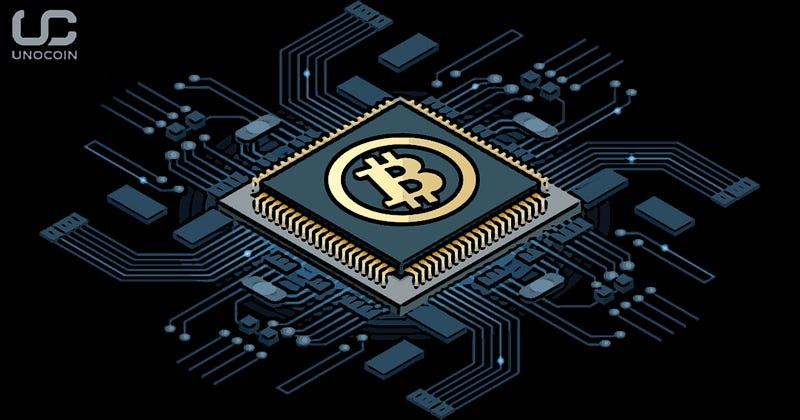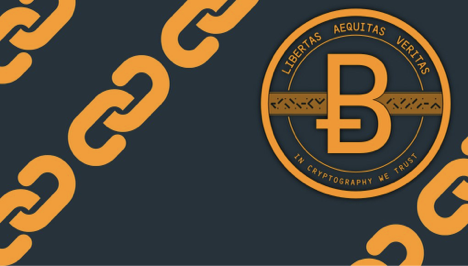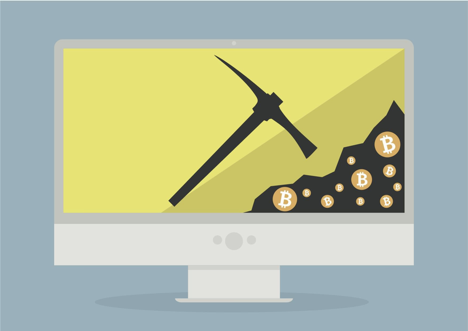
Trade · Ownership · Trust
Let’s analyse the technological advancement that fundamentally challenges your conceptual understanding of the above, and influences the way our economy, governance systems and businesses function.
Money exists to facilitate trade. Through the centuries, trade has become incredibly complex, especially in the context of globalisation. Trade is generally recorded in bookkeeping and this information is often isolated, and closed to the public. For this reason, we use third parties and intermediaries we trust, to facilitate and improve our trust. Governments, banks, accountants, notaries are these trusted third parties. But these parties ultimately control the value of your money, don’t they? Central banks influence rates of inflation and the value of your currency, often on instructions from the government.
In such a scenario, is your money truly yours? Trust is the fundamental currency of commerce. And lately, we’d lost it until a truly decentralisation currency emerged — Bitcoin.

Bitcoin Demystified for Novices
Technically, Bitcoin is open-source software. It enables a network of computers to maintain collective bookkeeping via the internet, involving digital tokens called bitcoins. It is also a cryptocurrency — a digital asset designed to work as a medium of exchange, using cryptography to secure the transactions. Cryptography mainly encompasses algorithms for key generation, and encryption and decryption of data using the key. Think of it as a substitute for the currency you currently use. Today it’s being accepted by multiple major brands worldwide, and is accepted as legitimate payment for anything from coffee and pizza to even real estate!
Bitcoin is a masterpiece project because it solves multiple problems. It allows for anonymous transactions, which, prior to it, were never possible. All electronic transactions could be linked to you — while cash payments required your presence.
A famous issue with digital currencies is the double spending problem — how does a receiver get his money while the sender debits it from his account? Can a hacker not send fake money and keep his own hoard too? He can then spend this money twice. Bitcoin solves this by having a decentralized mechanism of validation, authentication and also bring in immutability referred as Blockchain.

The Blockchain
Bitcoin’s bookkeeping is neither closed, nor in control of one party. It is public and available on a common digital ledger, fully distributed across the network. This is called the blockchain. And it’s what makes bitcoin ‘decentralised’.
The blockchain is perhaps the most impactful and far reaching innovation to come out from bitcoin. It is a public ledger — a record of every transaction in history of bitcoin — including information on the date, time, participants, and amount of every single transaction. Each node (i.e a person connected to the bitcoin network) owns a full copy of the block chain.
Imagine this: With hypothetical digital currencies thought of before Bitcoin — you could do a private transaction, which would involve you sending money to a receiver. The receiver would then send you a confirmation that he has received the money, and you would debit your balance. A hacker could manipulate this and refuse to receive confirmation of your receipt. He would then get to keep his money, while you received it too. New money would be created this way.
The blockchain solves this problem by letting the entire network see your transaction. You can’t lie about a transaction if you’re doing it front of a crowded room with everyone watching, can you? That’s what the blockchain is — every node on the network acknowledging and confirming everyone else’s transactions.
On the basis of complicated mathematical principles, the transactions are verified by other people on the network — who we call ‘Bitcoin miners’, who maintain this ledger. The mathematical principles also ensure that these people (or nodes) automatically and continuously agree about the current state of the ledger and every transaction in it. If corruption of a transaction is attempted (like in the hacker example we just noted), the nodes do not arrive at a consensus, and hence refuse to incorporate the transaction in the blockchain. Every transaction is public and thousands of nodes unanimously agree that a transaction has occurred on date X and time Y.

Bitcoin mining
Why would all the other nodes want to remain on the network though? There’s got to be incentive for them, and there is. The blockchain is ‘hashed’ — that is, it is cryptographcially encrypted, and nodes must spend their computing power trying to decrypt it. The reward? 12.5 bitcoins (currently) for every hashed block of transactions they validate meeting specific criteria. This act is what we call ‘Bitcoin mining’ — lots of nodes spending their computing power to help validate transactions, and getting lucky with bitcoins in the process. You’re literally paid for your service.
It’s a perfect system — one that covers all possible loopholes, and allows for an economy to thrive globally.
Of course, with millions joining bitcoin, and the reward per mine remaining the same, mining has gotten exponentially tougher. The efforts are high, the rewards are low, and there are too many nodes to share the bounty with. In fact, it probably does not make economical sense for an individual to mine coins anymore. But more on that, in a separate post.
Bitcoin Wallets: How Bitcoin Payments Work
Since we’re dealing with a currency here, it is obviously important to know how payments would work. Heading back to the example we discussed above — a transaction originates when your bitcoin wallet broadcasts it to the network — letting everyone know that it would like to send some coins to a person you’ve chosen. Once this transaction is verified by miners on the blockchain, it is complete and the coins are transferred. A bitcoin wallet is a piece of software that is used to store and manage your coins.
Getting a Bitcoin Wallet
How can you get your hands on a wallet though? There are plenty available online that you can choose from the official website. Setting one up on your computer involves downloading the client (the node), and setting a password to it. Remember to store this password in a safe place, as you’re unlikely to recov
er your wallet if you lose your password.
It’s much easier to set up your wallet on exchanges like Unocoin, of course. It also offers the added benefit of being able to buy and receive coins from others, via Unocoin, without having to go through the technical hassles of an offline wallet. Bitcoin exchanges however, are a world of their own we should dedicate a separate post to.

More
Of course there’s a lot more to bitcoin. But again — this fascinating currency is going to need dedicated posts for all its sub-concepts. In the next post, we’ll discuss the inventor of bitcoins, how you can buy and sell (or store) bitcoins, how you should keep them safe, what the future holds in store for the currency! Stay tuned, and perhaps sign up on Unocoin while you wait? 😉
Recommended read:
Curious about Bitcoin? — Link



